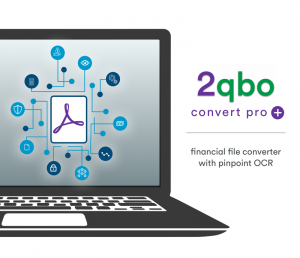Merchant cash advances (MCAs) provide small business owners with an alternative financing option separate from traditional bank loans. Business owners receive financing upfront from a merchant cash advance provider and pay for the advance with a percentage of the business’s daily sales.
How Does a Merchant Cash Advance Work?
Merchant cash advances provide funds to small business owners in exchange for a percentage of the business’s income (usually credit card transactions) over time. Payments are typically made daily (and automatically) as the business generates credit card transactions. The total amount to be repaid is calculated by a factor rate, a multiplier generally based on a business’s financial status.
Merchant cash advances offer small business owners a quick and easy method to get funding immediately. The application can usually be completed and approved within one business day. There’s a high approval rate and funding is usually available within a day or two. In addition, unlike many traditional business loans, merchant cash advances do not require collateral.
However, there are also some big downsides to merchant cash advances, including the fact that they are usually pricier than traditional small business loans. Merchant cash advances generally cost 20% to 50% more than the principal amount. And unlike traditional loans with APRs, your daily payments don’t diminish the interest-bearing principal amount — the fee is due no matter how quickly you repay the advance.
In addition, depending on your state, you may be less protected than you would be when taking out a traditional loan. Merchant cash advance regulation is less developed since MCAs are not technically loans. As a result, some state courts have said that typically state usury laws or licensing requirements wouldn’t apply to MCA providers.
As you search for the right merchant cash advance, it’s important to compare your options. There are certainly a number of credible providers on the market, but some offer better rates than others, and not all may provide advances in the amounts you need. To help, we’ll review some trustworthy financial institutions later in this guide.
The good news is that qualifying for a merchant cash advance is relatively easy. Most providers offer an easy online application with quick turnaround times. Applying only takes a few minutes, and you should have an answer within one or two business days.
Unlike traditional business loans, applicants do not necessarily need to have multiple years operating as a business to qualify. While a lengthy operating history and good credit can help applicants obtain favorable payment terms, a short operating history and poor to average credit won't necessarily preclude applicants.
One factor that providers look at closely is whether the business has a consistently high sales volume. Small business owners seeking to apply should be prepared to submit:
- Information about your company structure
- Annual business income
- The estimated future income growth
- Bank account statements
- Credit card processing statements and credit check authorization
Pros of a merchant cash advance
- Flexibility: One of the largest advantages of merchant cash advances is that payment amounts are not set in stone.
- Good credit not required: Since MCAs are based more on your business’s monthly cash flow, your personal and business credit don’t play as large a role in determining your eligibility. To be clear, good credit is still preferred, and MCA providers may impose some requirements. But if your business consistently generates credit card transactions, you may be able to qualify even with bad credit.
Cons of a merchant cash advance
- High factor rates: Some lenders may have higher rates and fees for certain loan borrowers — but generally, MCA providers charge more since their risk is tied to a business’s revenue.
- Penalized for paying early: Since rates are not amortized over a repayment term, if your revenue increases and you pay back the advance ahead of schedule, your effective APR increases.
- Administrative fees: In addition to high factor rates, some MCA providers also tack on extra administrative fees. These are typically debited from your account shortly after a loan is disbursed, and if you’re only borrowing a lender’s minimum advance amount, it could constitute a significant percentage of your funds.
Hopefully, the above information will clear up any confusion you as a business owner may have had about merchant cash advances. The Rules of Thumb blog and the MoneyThumb team would appreciate it if you could share this blog post on your social media page so that your peers can benefit from the information it contains. We wish all our readers a Happy Memorial Day weekend!





















Add comment